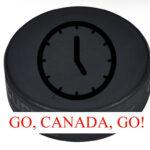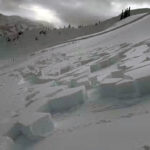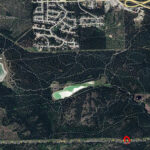Home »

Region first to break out MBDS
With the ever lingering threat of aquatic invasive species reaching our waterways, the East Kootenay Invasive Plant Council (EKIPC) has purchased Mobile Boat Decontamination Station (MBDS).
The station is the first of its kind in Western Canada, though there are numerous MBDSs in Idaho and Montana as the United States continues to wage war on the highly disruptive zebra and quagga mussels that have rapidly spread through that country in recent years.
On Thursday, June 14, the EKIPC and BC Conservation Officer Service trotted out and demonstrated the MBDS to project supporters and media at the Cranbrook Ministry of Environment parking lot.
EKIPC coordinator Marty Hafke said the purchase of the mobile wash station came about after EKIPC members attended an event in Libby, Montana where a scenario of quagga mussels had been introduced into Lake Koocanusa.
One of the ways to combat further spread was the rapid deployment of mobile wash stations to strategic locations along the reservoir that flows through both countries.
“We realized we don’t have any of these units in B.C. or Western Canada, at all,” Hafke exclaimed.
“Aquatic invasive species are heading towards the East Kootenay from all directions and the best and often only defense, is prevention. The mobile wash station will be an important tool in our educational outreach,” he said.
EKIPC purchased the mobile wash station with a $30,000 Environmental Initiatives Program Grant from Columbia Basin Trust, under their mandate to deliver, social, economic and environmental benefits to the residents of the Columbia Basin. In addition, Teck Coal and FortisBC were supportive of EKIPC’s grant application and donated additional funds towards the Boat Wash station purchase.
“We thought the time was right,” to make the purchase, Hafke said. “It’s a very big deal.”
The mobile wash station is simply a combination of high pressure spray (105 PSI) and hot water (60 C) – a perfect combination known to kill zebra and quagga mussels. Five and 10 second bursts respectively are enough to remove and kill mussels that are found on boats and trailers.
Both types of mussels are something we don’t want in our waterways in the Kootenays, Hafke pointed.
“They don’t have any natural predators and they upset natural ecosystems,” he said.
As a result, the mussels take over waterways they become introduced to, and cause havoc for recreational use, as well as for such things as hydroelectric dams.
Aquatic infestations, once they arrive, are limited to removal options and the best bet is to keep them out of our waterways, Hafke said, calling them “permanent biological pollution.”
To give an example of the urgency to be prepared to combat the spread of aquatic invasive species, Hafke pointed at the 1989 introduction of zebra mussels to the Great Lake. Despite some concentrated efforts, the mussels have now spread to the majority of North America. Only six U.S. states are mussel free and none have yet been found in Western Canada.
Hafke said the infestation in the Great Lakes has cost billions of dollars, as the hard-shelled critters literally cover water surfaces and create safety issues on beaches and for bathers.
They also cause major problems to boats and dams.
“It’s a real nightmare scenario we don’t want to deal with,” Hafke said.
The EKIPC is now operating a prevention program called ‘Clean, Drain, Dry,’ which relates to all aquatic equipment.
“Boats, jet skis, trailers, bait buckets, ballast and fish holding tanks. Clean and dry pets and water toys. Never transport plants, sediment or live bait between bodies of water,” notes an EKIPC pamphlet ‘Aquatic Invasive Species’ that offers tips on how to preserve local waterways.
“Never release or flush unwanted aquarium or pond species into natural waterways, drainage ditches or sewers. Drain aquarium water onto dry land, downhill from all natural water sources.
“Avoid purchasing or sharing aquatic species that are invasive. Do not plant invasive aquatic plants. Remove invasive plant species using site appropriate methods; hand pulling, digging and cutting. Dry out, bag, and landfill or incinerate for disposal.
“Choose rubber-soled hip waders. Felt soled waders can be a major source of invasive transmission. There are only two acceptable methods of sterilization: immersion in very hot 45C water with detergent for 30-40 minutes or freeze 48 hours until solid,” the pamphlet suggests.
Pictured above: Rick (Rocky) Allen/Columbia Basin Trust, Marty Hafke, EKIPC coordinator and Blair Weston/Fortis BC pose with the Mobile Boat Decontamination Station.
Ian Cobb/e-KNOW







